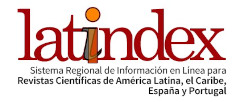CONDITIONAL CONVERGENCE: AN ANALYSIS OF MUNICIPAL CONVERGENCE CLUBS IN BRAZIL
Keywords:
Economic growth, persistent inequalities, Finite MixturesAbstract
This paper analyzes the dynamics of municipal economic growth in Brazil based on the conditional convergence model in clubs. Framed on the theory of conditional convergence, changes in convergence speeds´ are analyzed under the hypothesis of conditional convergence in clubs. There are two municipal groups of analysis based on regional inequalities: the first, the advanced group with a reduced number of municipalities, high speed of convergence and sensitive to investment shocks; and the second, a backward group with a large number of municipalities, reduced convergence speed and less sensitive to investment shocks, especially concerning human capital. The result suggests that a national policy to encourage investment in reproducible capital with excluding different realities of production may increase economic inequalities among municipalities in countries with robust inequality, such as Brazil.Downloads
Published
2020-09-02
How to Cite
Lima, S. da S., Paulo, F. L. L. de, & Souza, M. C. L. de. (2020). CONDITIONAL CONVERGENCE: AN ANALYSIS OF MUNICIPAL CONVERGENCE CLUBS IN BRAZIL. Revista Brasileira De Gestão E Desenvolvimento Regional, 16(3). Retrieved from https://www.rbgdr.com.br/revista/index.php/rbgdr/article/view/5710
Issue
Section
Artigos
License
Authors who have their papers accepted and published in the Brazilian Journal of Regional Management and Development must agree to the copyright policy CC BY https://creativecommons.org/licenses/by/4.0/.
If the article is accepted for publication, the copyright is automatically assigned to the Brazilian Journal of Regional Management and Development.

















